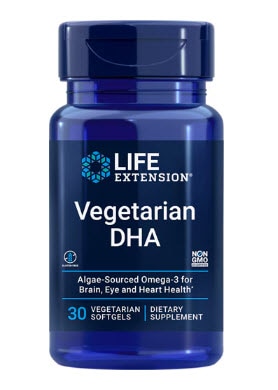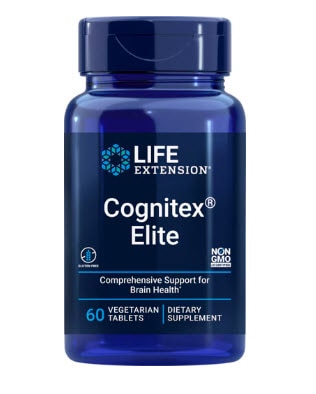As brilliant as our brains are, they aren’t exempt from the age-related changes that come as we accrue wisdom, wrinkles and white hairs. Over time, it’s not uncommon to find ourselves fumbling for words, mixing up names, or being slower at multitasking.
The good news is that making lifestyle changes now can help us safeguard cognitive health and function in our golden years and beyond.
Is there a connection between aging and the brain?
Yes! Like every other cell, tissue and organ in your body, your brain changes as you enter your 30s and 40s, and those changes rapidly increase by the time you reach your 60s.
What does this look like? The aging process can impact the brain in two ways:
- Structural changes—The brain changes in volume and number of neuronal connections. Physical changes in neurons also slow down cognition. As we age, we also have changes in how our neurotransmitters fire, which may further affect cognitive function.
- Functional changes—These physical changes in our brain can affect aspects of cognitive health and performance, like mixing up your grandchildren’s names, finding your mind wandering, or struggling to remember where you left your glasses.
Of course, everyone ages differently, and while one person is sharp as a tack well into their 80s, another may have those senior moments well before they are retirement age. This is because other factors, such as the overconsumption of highly processed and refined foods, smoking and drinking, family history, and oxidative stress, contribute to age-related effects that accumulate over the years and take their toll on cognitive performance and overall health.
Why is brain health important?
Whether you’re reading this article, enjoying a hearty meal, helping your teenagers with their homework, or winding down at the end of a long day, your brain is the mastermind organizer (pun intended) behind it all.
But there’s a catch. With age, some of that mastery can slip from your grasp. To keep solving algebra problems while cooking dinner—not to mention remembering names and where you left your keys—it needs to remain plastic. No, not plastic like a toy or a water bottle, but in a flexible, reinvent-yourself way. Neuroplasticity is your brain’s ability to grow, adapt and rewire itself throughout life.
Younger brains are more “plastic” than older brains (it’s probably why we take brain health for granted when we’re younger), but you can keep your noggin nimble with the right diet, supplements and lifestyle choices. While age-related changes in your brain (and body) are inevitable, growing older doesn’t mean you have to lose your cognitive abilities, especially if you start prioritizing cognitive health now.
Let’s talk about what that looks like.
Top foods to feed your mind
You can eat your way to a sharp mind by prioritizing nutrient-rich, whole foods. Eating patterns like the Mediterranean or the MIND diets are excellent ways to ensure you’re eating brain-friendly foods.
- Broccoli and leafy greens—These foods are an excellent source of magnesium, vitamins, and minerals and are high in protein, all of which are essential for cognitive performance.
- Berries—Rich in antioxidants, berries (blueberries, strawberries, raspberries, blackberries) can help quench free radical activity and protect delicate brain cells from oxidative stress.
- Fatty fish—Think mackerel, salmon, sardines, trout and tuna! Oily fish are rich sources of omega-3 fatty acids, which are famous for supporting brain health.
- Eggs—As an eggcellent source of choline, eggs are an accessible way to nourish your noggin.
- Lean meats—In addition to providing accessible forms of amino acids, lean meats provide nutrients like iron, zinc and vitamin B12, all crucial for brain function and cognitive performance.
- Nuts and seeds—Walnuts, almonds or hazelnuts pack a wealth of nutrients like omega-3 fatty acids, antioxidants and vitamin E, which support cognitive function, memory, and brain cell health.
Supplements for a healthy brain
Another way to prioritize brain health is with targeted dietary supplementation. Adding these nutrients to your routine can help safeguard your cognitive health and function for many years to come.
- Lecithin—A type of fat, lecithin plays a vital role in the structure and fluidity of cell membrane (including brain cells), which is essential for healthy cellular performance and function.
- Vinpocetine—Known to encourage brain blood supply, vinpocetine also supports the ability to retain and recall information and helps support concentration, key to overall cognitive performance.
- DMAE (Dimethylaminoethanol) bitartrate—The body uses DMAE to make choline, a precursor of the neurotransmitter acetylcholine, involved in memory and learning. Studies suggest DMAE is a free radical scavenger and can help protect brain health.
- DHA—This omega-3 fatty acid (acid docosahexaenoic acid) is found in high concentrations in brain synapses, the junction where neurons communicate with each other. And there are plant-based DHA options available
- Phosphatidylserine (PS)—As a crucial component of healthy nerve and brain cells, supplementing with PS can help support memory, focus, concentration and overall cognition.
- Wild green oat extract—Studies suggest wild green oats extract can help promote cognitive performance by encouraging healthy dopamine levels. Adding a high-quality supplement with wild green oats extracts can help support dopamine production in the brain.
- Alpha-glyceryl phosphoryl choline (Alpha-GPC)—The brain uses choline to support memory, mood and other cognitive functions. Adding an alpha-GPC supplement to your brain-friendly routine is a proactive way to support overall brain health.
- Pregnenolone—In the body, pregnenolone is a neurohormone that supports brain function. A high-quality supplement with pregnenolone can help support brain function.
- Sage extract—As a popular nootropic, formulas with sage extract can help support brain health, focus and attention.
- Lithium—Like a bodyguard for your brain, lithium has been clinically studied to help maintain healthy cognition and brain function by protecting against age-related changes.
- Vitamin B12—Cobalamin or B12 plays a vital role in maintaining healthy blood cells, brain cells, and even your DNA, all essential for a healthy brain.
Always speak with your doctor before adding any supplement to your wellness routine.
5 tips to keep your brain healthy
Supporting cognitive health isn’t just about what you eat or what supplements you take. It’s also about your lifestyle choices. Here are five simple tips that can help keep your noggin in top-notch health:
- Learn new things—There’s no better way to keep your brain healthy than being brave enough to try your luck at new things. Getting out of your comfort zone by learning a new language, taking guitar lessons, or giving salsa classes a whirl is a surefire way to keep your brain “on its toes” and continue to grow and adapt despite age-related changes.
- Prioritize restful sleep—You’re doing your brain a disservice if you’re not practicing good sleep hygiene. During sleep, your brain consolidates new information, removes waste, restores and repairs tissue and regulates emotions. Aim for seven to nine hours of uninterrupted sleep to reap the benefits for both mind and body.
- Stay active—The most effective way to reap the brain-boosting benefits of exercise is to incorporate more than just an intense cardio session. Add resistance training like powerlifting a minimum of three days a week for 30-to-45 minutes a day to fuel memory, improve focus, and combat age-related cognitive changes.
- Keep your zen—Unmanaged stress can be the culprit behind scattered thoughts and lack of focus. Practicing mindfulness, the habit of living in the present moment, through yoga or meditation can help you develop resilience to stressful situations. Spending time in nature, cuddling with your pooch or hopping on a call with a loved one are also excellent ways to keep stress at bay.
Pro tip: Add supplements like lemon balm or GABA to your routine to support a healthy stress response.
- Play mind games—Flex your mind muscles with games that require thinking, learning, and lots of practice. You can give your mind a good workout with games like chess, sudoku, Scrabble, crossword puzzles and memory games.
Prioritizing brain health is the cornerstone of a long, healthy lifespan. Start incorporating these changes today. Your brain will thank you for it!




